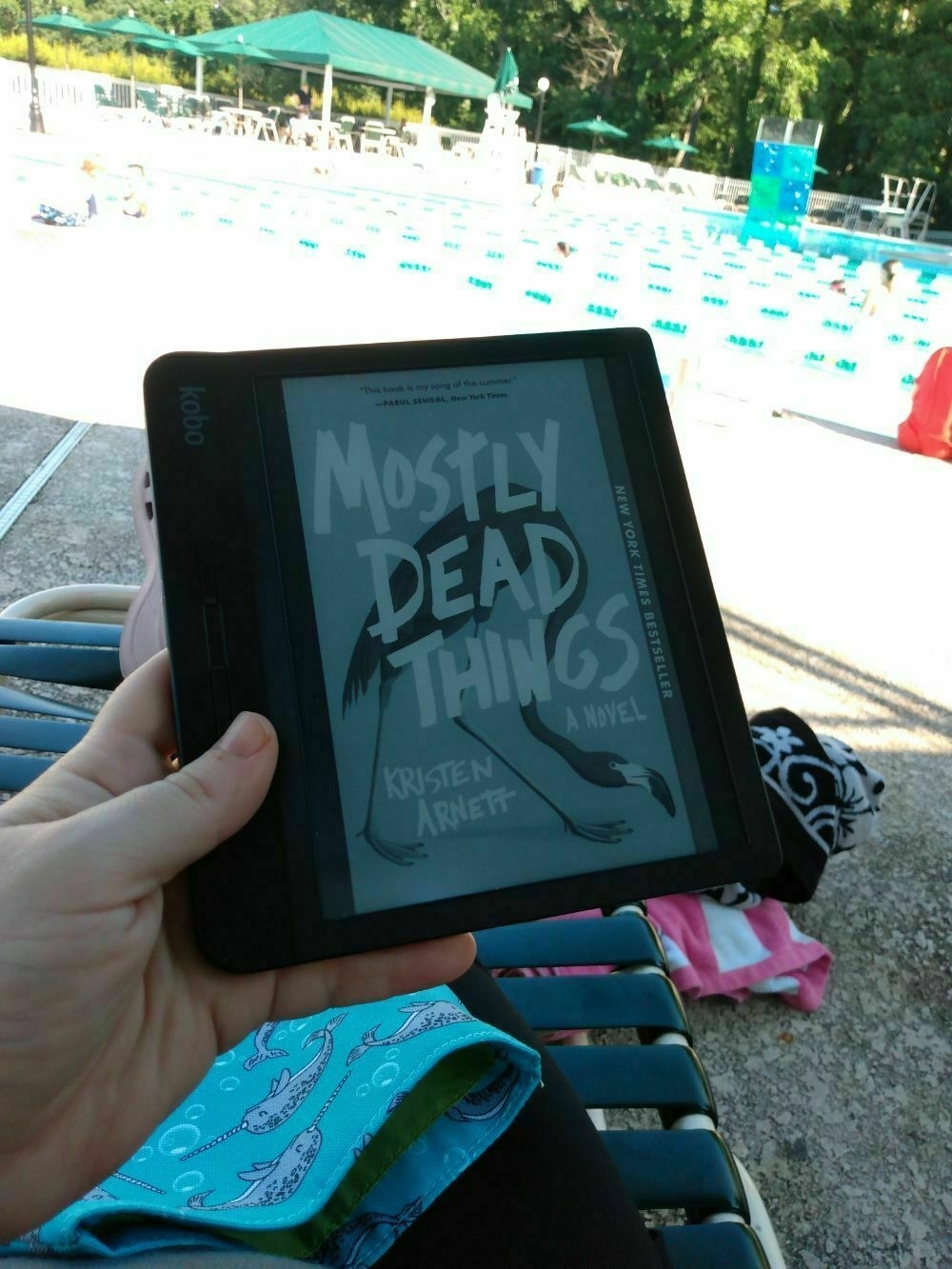I may receive commissions for purchases made through links on this page.
Hello, everyone! How are you doing?
Over here, I’m on Day 6 of being In My 40s and it’s going just fine. I had an amazing birthday party: I rented a big gazebo area at the neighborhood pool (which is a fancy pool with an expensive membership fee but that membership fee is cheaper than a summer’s worth of camp, so…). I invited a lot of people and some of them came. I got to see some friends for the first time since before the pandemic, as well as invite family out to a place they hadn’t been before (i.e. the pool). We weren’t worried too much about COVID because of being outdoors and it was just really delightful. And it also felt a little like a celebration of me finishing the PhD, too. Also, I swam for a while in my mermaid tail and got to talk to some kids who really liked it and wanted me to go underwater so they could go down and watch what my swimming looked like under there. 🧜♀️
I also sewed those napkins! Remember? And for my birthday my friend Casey introduced me to pre-filled bobbins, which I’m very excited about. Next up, I’m going to sew a pillow to put on my desk chair. The fabric is MANATEE fabric and I’m psyched.
I did some important businesslady things today. Most importantly, though, I made a to-do list for the businesslady things I need to do tomorrow. Here’s where I stand right now:
- I’m doing consulting for Quirkos, a company that provides qualitative data analysis software. I have had a bit of a crush on qual since Day 1 of my Field Techniques in Educational Research class and it’s the primary kind of research I’ve done, so I’m excited to work with an organization that is dedicated to supporting it.
- I’m developing The Quiet Space, a project to provide structure for scholars and other knowledge creators so that they are free to focus on creative work.
In September, once my kid is settled into preschool, I hope to get in touch with some other potential consulting clients.
I talked with my doctor on Friday. My thyroid numbers are moving in the right direction, but still not where I want them to be. I worried that a change in my prescription dosage would be too extreme, so we agreed that I would up my intake of l-tyrosine. My glucose and hemoglobin A1C are high, meaning I’m pre-diabetic. I also have a lot of intense PCOS symptoms like acne, hirsutism, and oligoovulation. My primary focus right now, aside from caring for my kid, is working on healing this so that my PCOS is well-managed. I’m using Amy Medling’s book Healing PCOS to help me with that.
Aside from that, I’m reading Harrow the Ninth, which is super fun.
What’s new with you?



